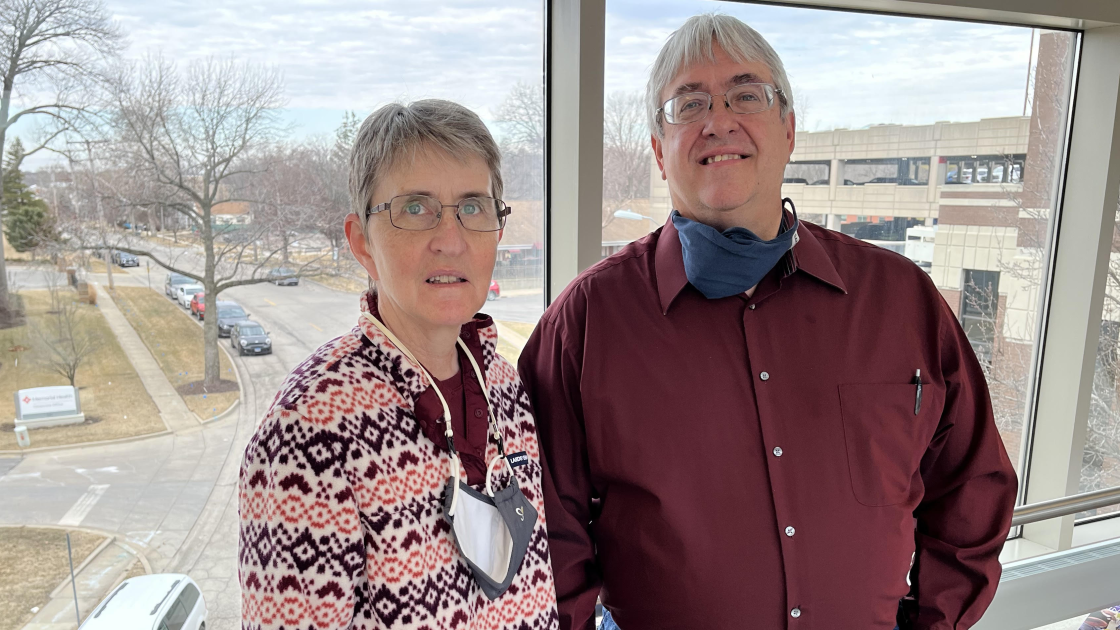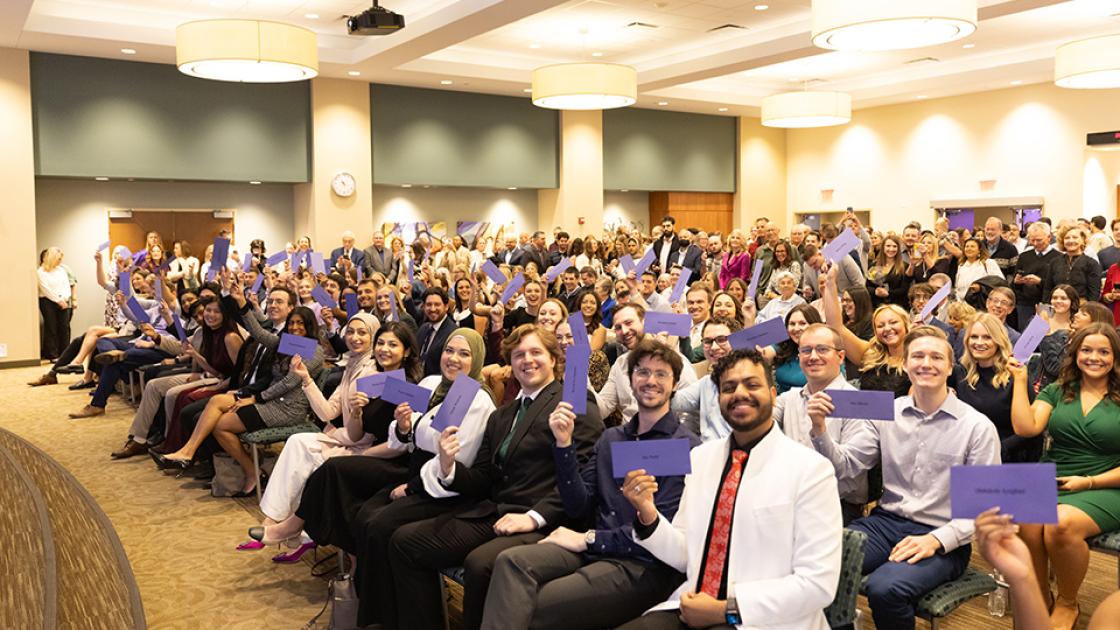
Trials and Determination: How Clinical Trials Are More Than Just Data
Springfield couple wants to help solve dementia through volunteering for clinical trials
As a teacher, Karen Perrero made plenty of lists to keep life and the classroom in order.
For around two decades, she taught at parochial schools as a science teacher, introducing young students to the world of science. But a few years ago, Karen started to feel a little off. She was becoming more uncertain in daily matters.
“I had this inkling there’s something different in me,” she said. “The way I couldn’t remember things.”
Her husband, Daren, noticed it too. The lists she used to organize life became more numerous and necessary. After a routine physical, Karen’s physician recommended she take a cognitive assessment exam at the Smith Alzheimer’s Center. She was diagnosed with dementia.
■■■
On the University of Illinois campus, college students Daren and Karen Perrero fell in love with science and each other.
Karen’s path to teaching science intersected with Daren’s study of bioengineering, which eventually turned into working with the Illinois Emergency Management Agency and radioactive materials. They were coming at science from both sides, but with the same foundation.
“It was a match made in heaven,” Karen said.
That background in science kicked into high gear a few years after their son, Vince, was diagnosed with muscular dystrophy. The Perreros immediately peppered physicians with questions, asking what kind of treatments were available, what kind of cures, what options were out there to help extend life?
Vince unfortunately passed away in 2013 at the age of 22. “We sadly found out that technology and the related science as we knew it was not quite there yet,” Daren said.
So when Karen was diagnosed with dementia, the Perreros had déjà vu, asking questions about a cure that didn’t yet exist.
But they’re determined to help find one. The Perreros have volunteered in two successive clinical trials, one consisting of taking a daily pill and one a daily injection, at the Smith Alzheimer’s Center to help find better and more effective treatments.
Karen’s father suffered from dementia as well, so they’ve seen its effects on multiple generations. Even if a cure isn’t found in their lifetime, providing more data through a clinical trial offers a better chance for their daughters, Valerie and Abigail, and subsequent generations.
“Dr. (Tom) Ala always says this phrase that I didn’t really fully appreciate until now,” Daren said. “That is, ‘Somebody is going to be the first person cured, and the first person to be cured will have been in a drug trial.’
“You want to be on the cutting edge of science? Here it is.”

While a cure is the main goal, the Perreros have seen the added benefit from just enrolling. Instead of coming back every few months for an appointment, they have constant touchpoints with the Center. There are preset check-ins and opportunities to ask questions while updating the trial data.
“The biggest advantage to a drug trial is the immediacy, the interaction with someone who is as experienced and skilled as Dr. Ala and the support staff,” Daren said.
“All of those interactions are great. You mention something changed or is different, they might say, ‘Oh that’s common,’ or, ‘That’s extremely unusual. We should look into that further.’ We’re getting information that helps us on a day-to-day basis.”
Between frequent visits to update the clinical trial, or coming back for a regular appointment, the sense of warmth and friendliness has made visits that much more welcoming.
“The people we’ve dealt with at SIU – 'amazing' is a word that gets overused, but it certainly applies in this case,” Daren said. “Their experience, knowledge, that information that they are constantly able to draw on and give out to you, that’s fabulous.
“But I think what really makes it work is the personalities of the people. They tell a good joke and they laugh at my bad jokes. The staff and professionals here are absolutely amazing.”
Want to get involved?
We'd love to tell you more. Reach out to learn about current trials and if you qualify. All study-related drugs and assessments will be provided at no cost to the participant. For more information, please contact: 217.545.9737 or email nsi_research@siumed.edu.



